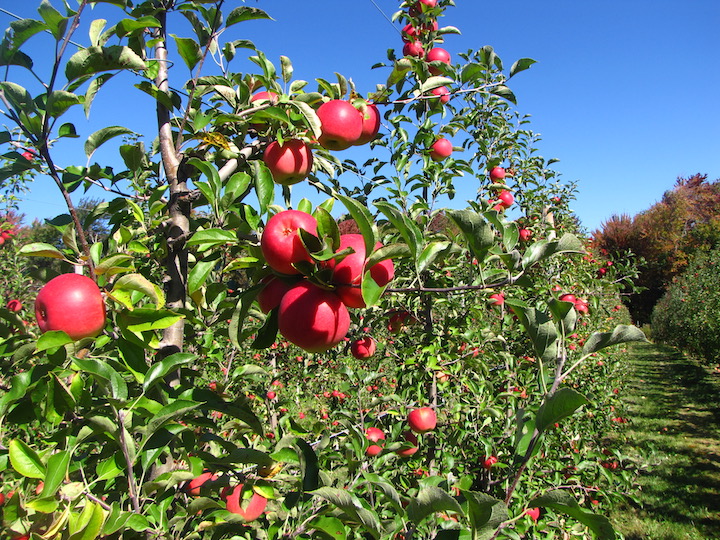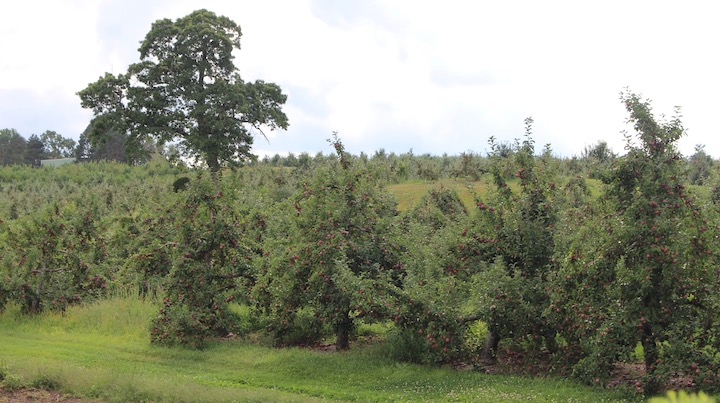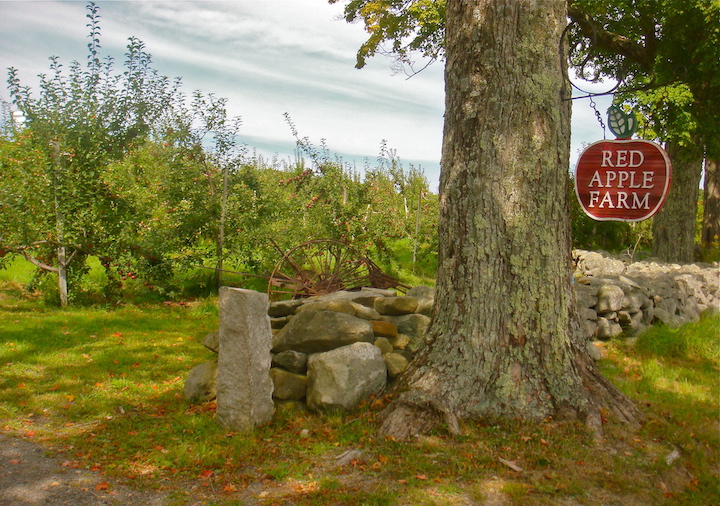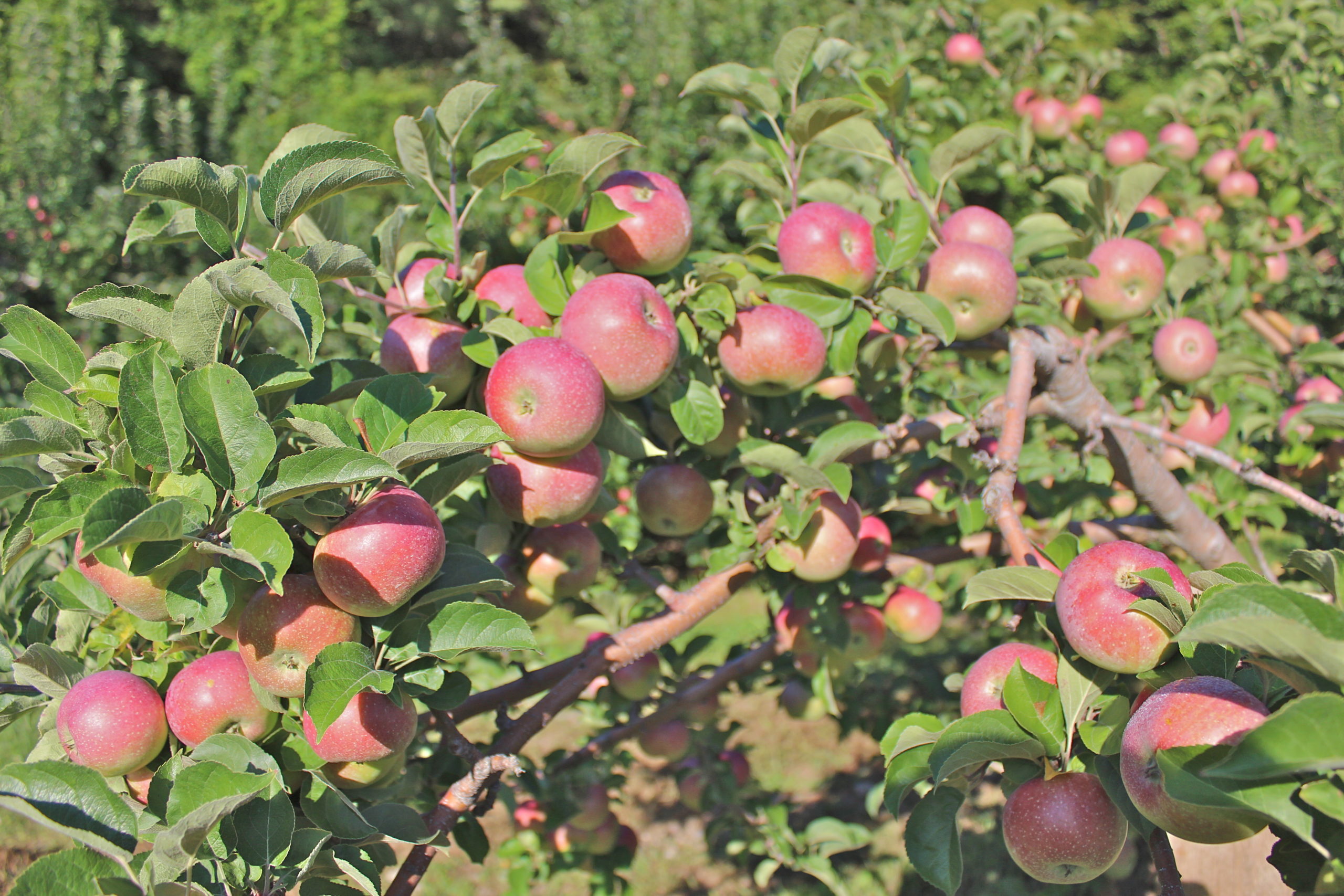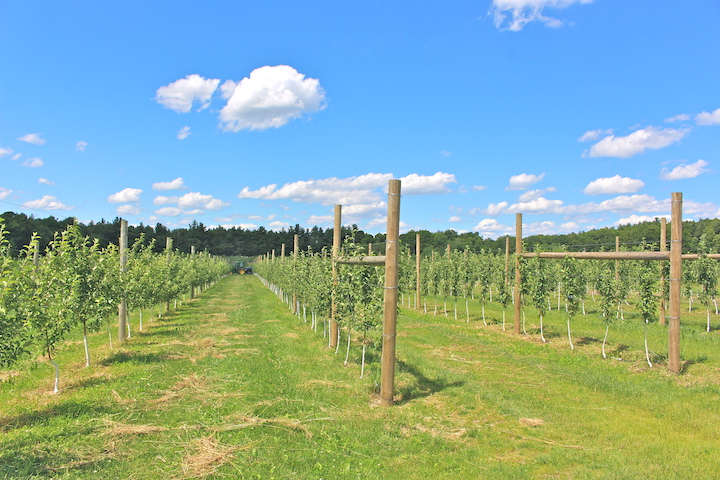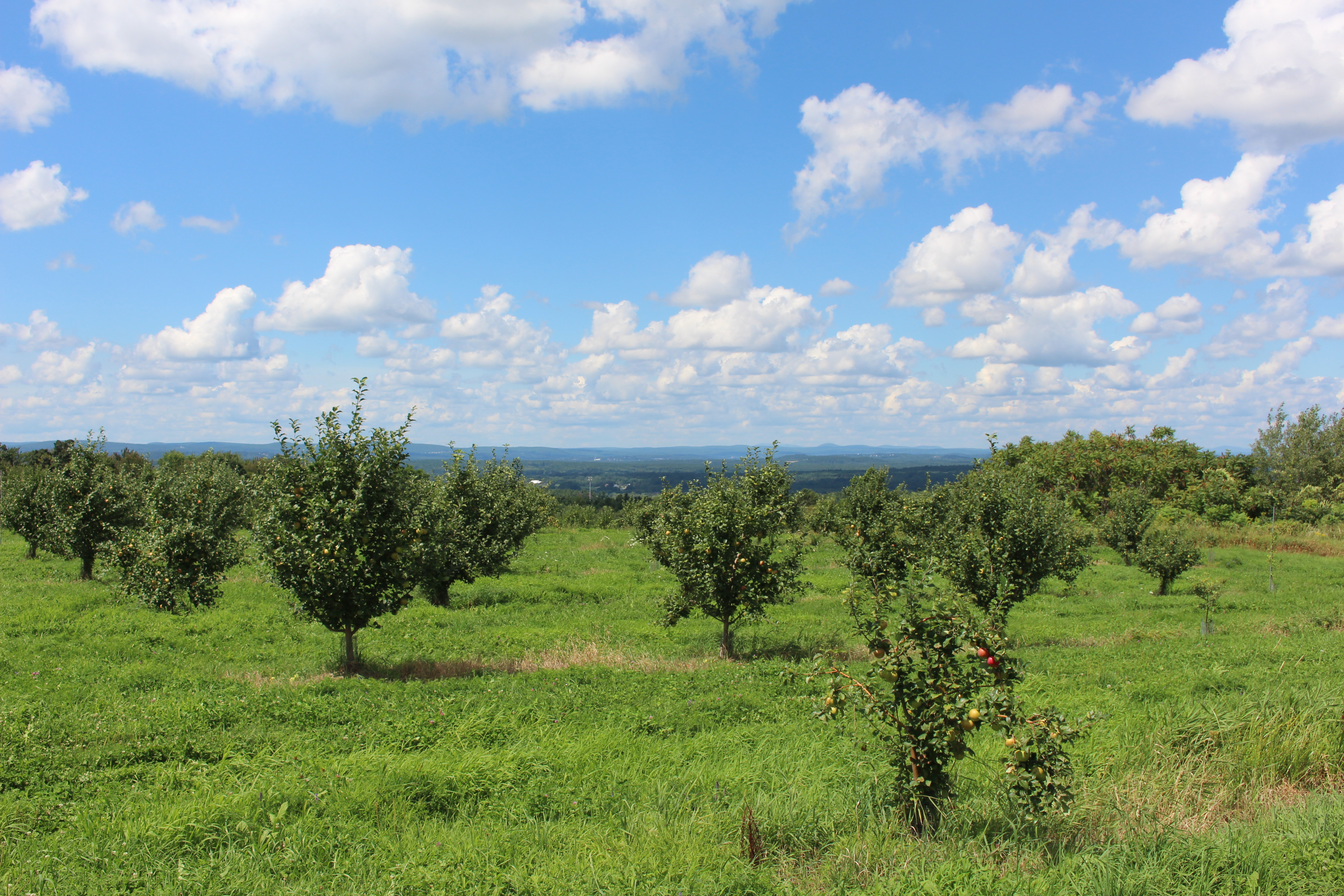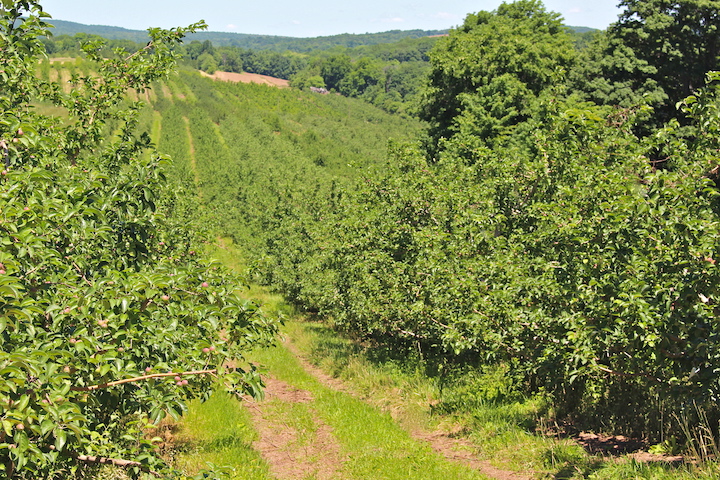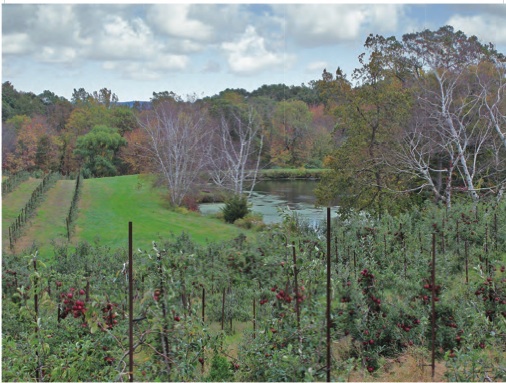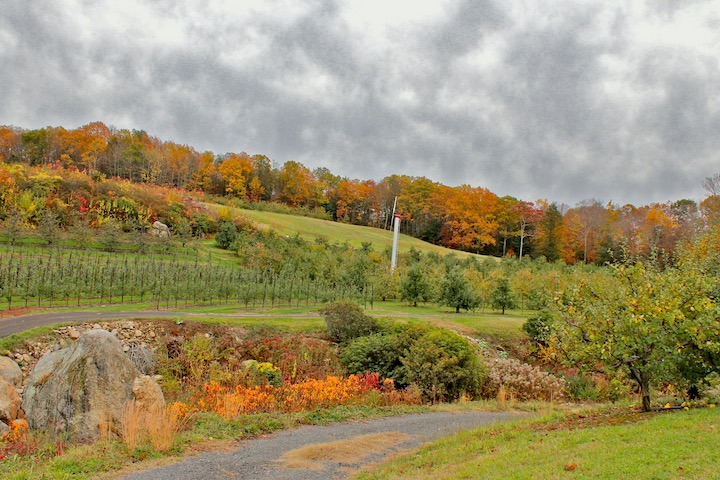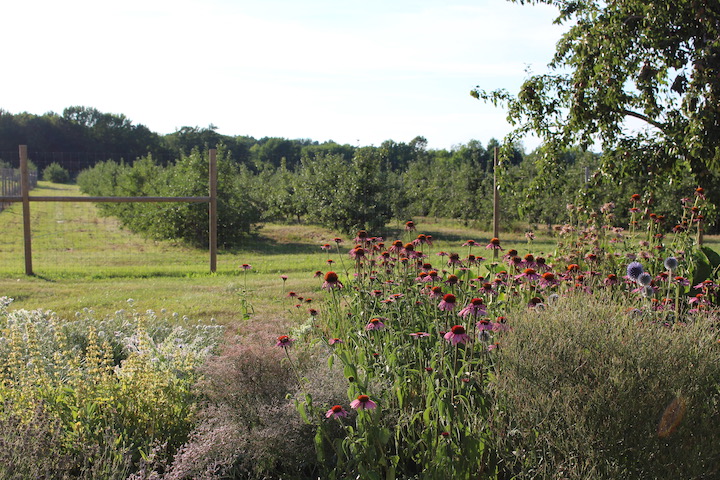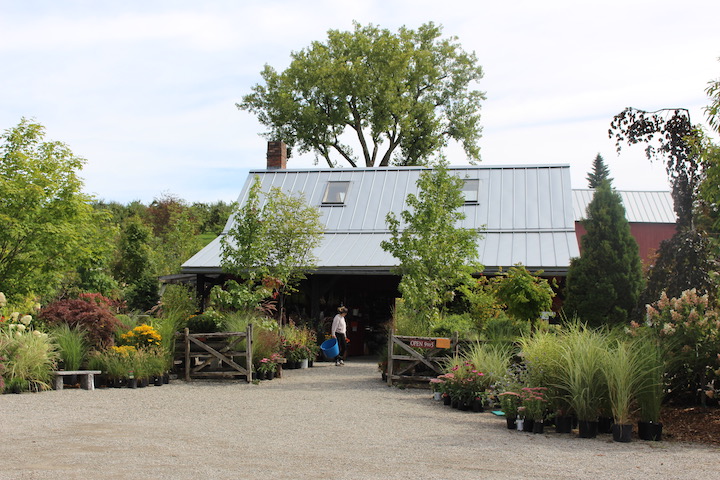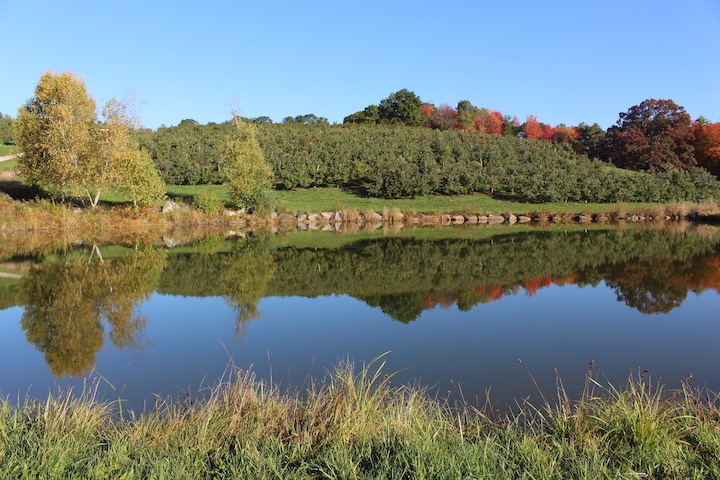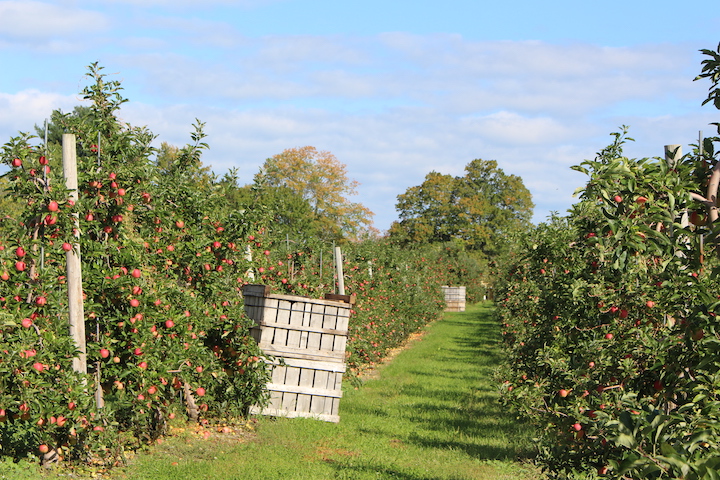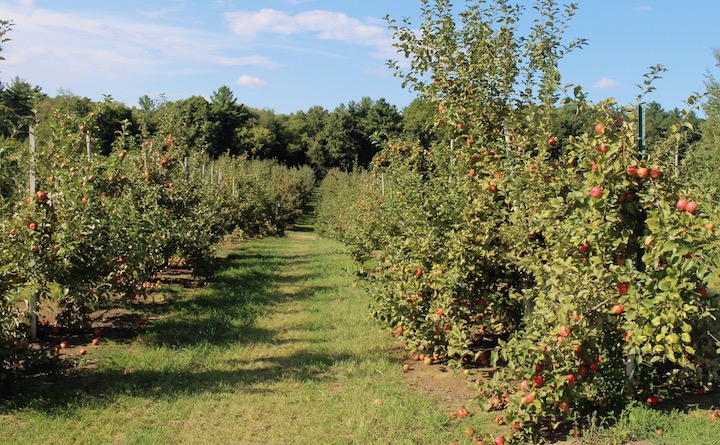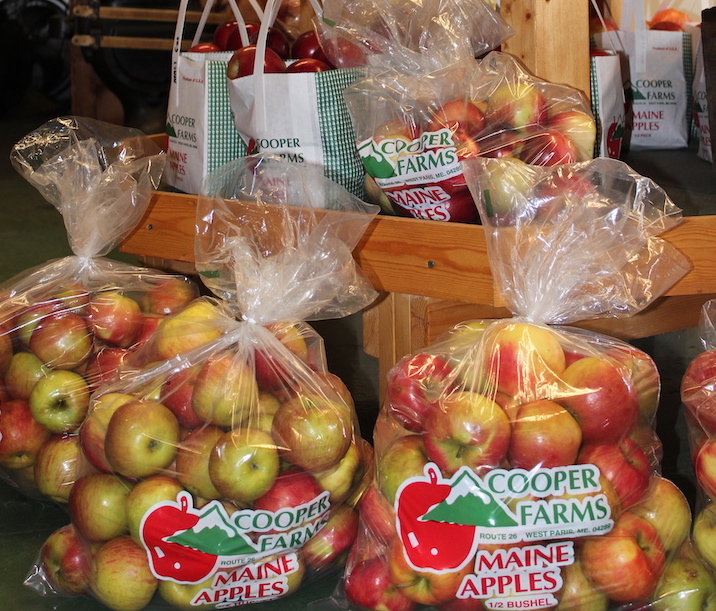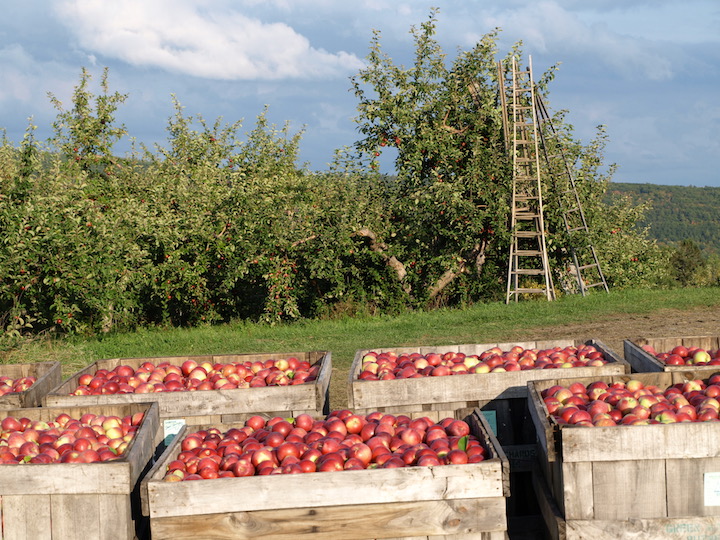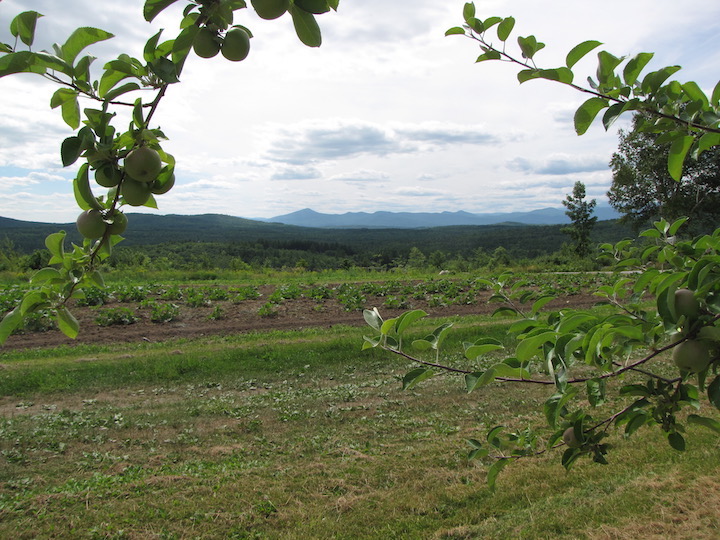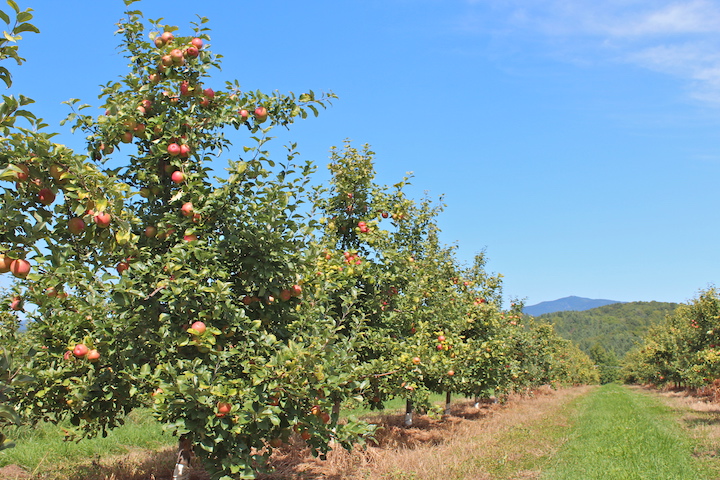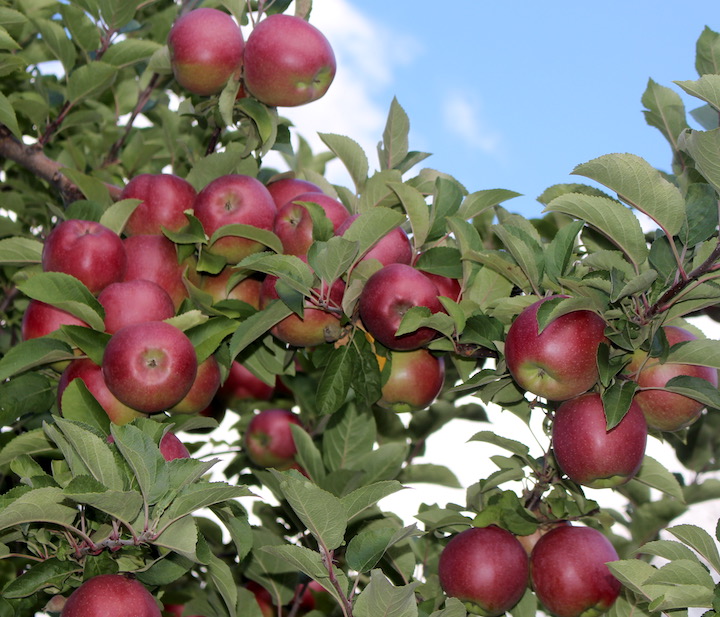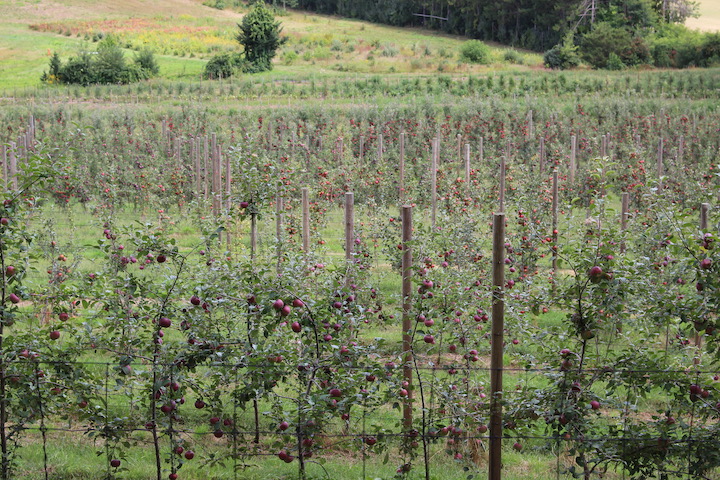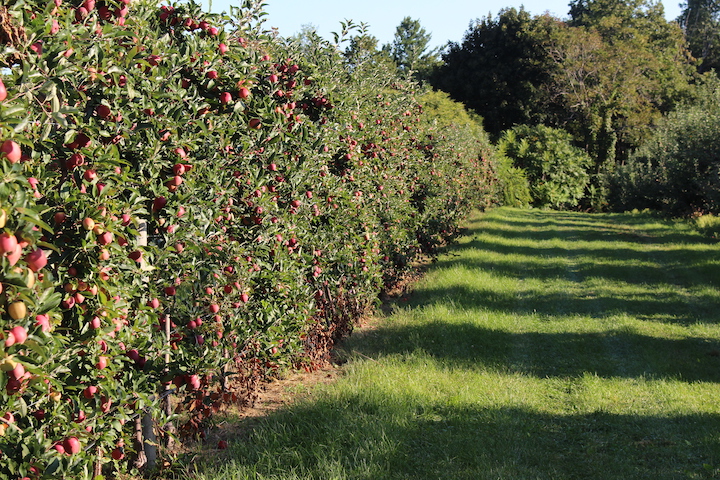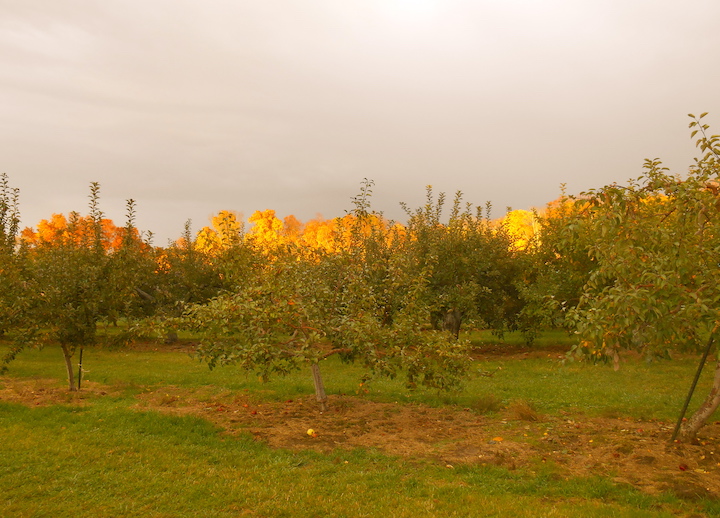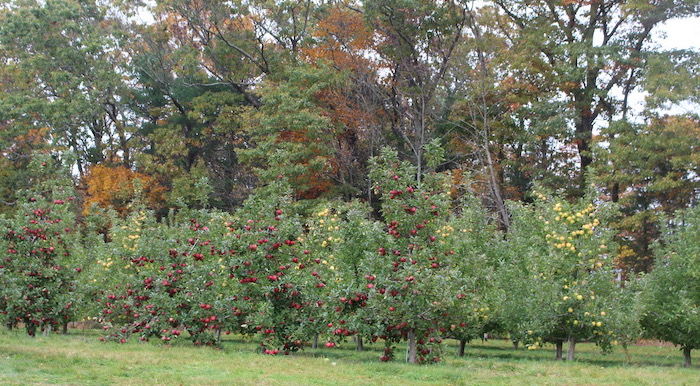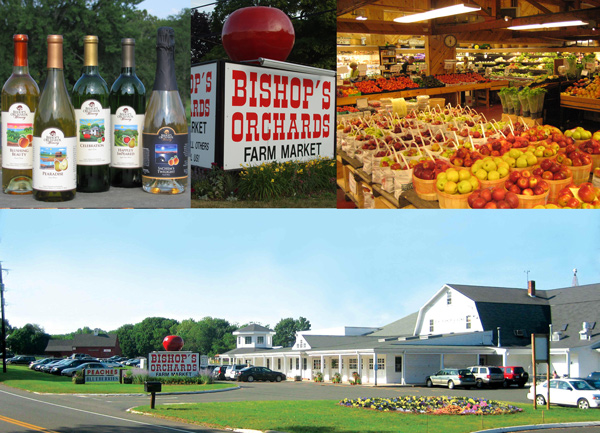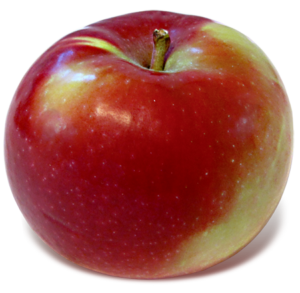
Description
Especially juicy, slightly tart, and the most aromatic of all apples, with two-toned red and green skin, McIntosh has been praised by countless writers, chefs, and apple lovers for its unique flavor. Here is Frank Browning’s poetic description of the Mac, one of his prize apples in the book Apples: “McIntosh is a medium sized, bright red to deep purple over green, with a dusty bluish bloom. Crisp but not hard white flesh with berry-like aroma and high juiciness.”
“Snap a rosy McIntosh from the tree and it’s like walking with Thoreau past Walden Pond in the 1840s, as the complex play of honeyed, tart, and spicy juices trickle down your throat,” Browning co-wrote with Sharon Silva in his next book, An Apple Harvest.
“In prime soon after picking with strawberry or even elderflower flavor and sweet, glistening, melting, juicy white flesh,” wrote Joan Morgan and Alison Richards in The New Book of Apples.
McIntosh is excellent for both fresh-eating and cooking, and it breaks down easily, making it a popular choice for applesauce. Its flavor is superb in pies, ideally mixed with a firmer variety for the best in taste and texture. Start picking Macs in early September.
Discovered: 1801, Canada
Parentage: Fameuse x Detroit Red
Harvest: Midseason
History
McIntosh is considered a cross of Detroit Red and Fameuse (Snow). John McIntosh of Dundas County in southeastern Ontario, Canada, who grafted the sapling in 1801, which were nurtured and developed into commercial potential over the next few decades by his son.
Dr. Thomas H. Hoskins (1828-1895), physician, horticulturist, and writer, planted the first McIntosh in the United States in 1868, in Newport, Vermont. It quickly gained in popularity. After the bitter winter of 1933-34, in which most of New England’s popular Baldwin apple trees were destroyed, the hardier McIntosh soon moved into first place, becoming the quintessential New England apple. Macs account for more than half of the total New England apple harvest of about 3.5 million bushels.
